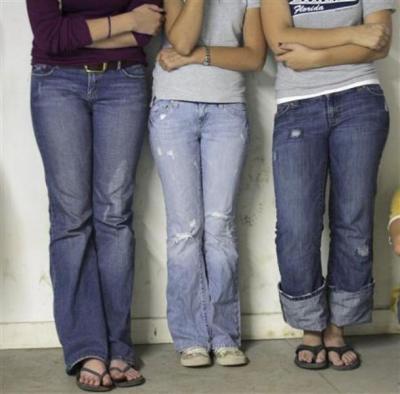Idaho becomes first state to ban abortion trafficking

Idaho Gov. Brad Little signed a bill into law making it illegal for an adult to help an underage girl obtain an abortion without consent from a parent or guardian. Anyone convicted of violating the law could face two to five years in prison.
Referred to as the “abortion trafficking” law, the legislation is the first of its kind in the United States.
The law not only prohibits the procurement of abortion pills for an underage girl but also makes it illegal to transport a pregnant girl across state lines for an abortion without her parents’ knowledge and consent, The Associated Press.
Violators will face two to five years in prison and could also be sued by one of the girl’s parents or guardian. However, parents who have raped their child will not be able to sue, though the criminal penalties for those who helped the girl obtain an abortion still apply.
The law also grants the state's attorney general the authority to prosecute someone for alleged violations of the law, even if the county prosecutor, who would typically be responsible for filing a criminal case, declines to do so, according to the newswire.
To avoid infringing upon the constitutional right to travel between states, Idaho’s law only criminalizes the in-state portion of a trip to an out-of-state abortion provider.
In his signing statement on April 5, the Republican governor wrote, “House Bill 242 does not criminalize, preclude, or otherwise impair interstate travel, nor does it limit an adult woman from obtaining an abortion in another state. Rather the ‘abortion trafficking’ provision in the bill seeks only to prevent unemancipated minor girls from being taken across state lines for an abortion without the knowledge and consent of her parent or guardian.”
A legal opinion from Idaho’s new Attorney General, Raul Labrador, states that the ban also prohibits healthcare providers from prescribing abortion medications to be picked up in other states or referring patients to out-of-state providers for abortion services, according to the newswire.
Planned Parenthood, the nation's largest abortion business, announced it will challenge the law, arguing that it will isolate young people and put them in danger, particularly those in abusive situations.
However, Katie Daniel, state policy director of Susan B. Anthony Pro-Life America, a network of more than 1 million pro-life Americans nationwide, celebrated the ban.
“With too many cases of the abortion industry willfully covering up abuse and siding with traffickers, abortion trafficking is a nationwide issue,” Daniel said. “Through this landmark law, Gov. Little and pro-life legislative leaders have established one of the most enforceable parental consent policies in the country — setting a standard for deterring and punishing such horrific exploitation of young girls.”
Daniel said parental rights have become a primary focus for Planned Parenthood and other pro-choice advocacy groups, adding that in Ohio, the American Civil Liberties Union is challenging the state’s parental consent law, vowing to remove it through a ballot initiative or legal action, ultimately depriving parents of their ability to protect their daughters.
Idaho is one of 13 states that have banned abortion in all stages of pregnancy and is also among a few states with laws penalizing those who help people of any age obtain abortions.
Currently, 36 states require parental involvement in an underage girl's decision to have an abortion, with exceptions under certain circumstances, according to the Guttmacher Institute.
Last month, a Texas man filed a lawsuit for wrongful death and conspiracy against three women he claimed helped his ex-wife obtain chemical abortion pills, marking the first case of its kind since the U.S. Supreme Court overturned Roe v. Wade in June 2022.
In the lawsuit, Marcus Silva alleged that two of his ex-wife's friends assisted her in obtaining chemical abortion pills. He further accused a third woman of transporting the drugs to “murder baby Silva.”
Silva stated that his wife discovered her pregnancy in July 2022, a month prior to the activation of Texas’ trigger law, which prohibits abortion unless a doctor determines it is necessary to preserve the life or health of the mother.
Under the Texas Heartbeat Act, which was passed in 2021, citizens are permitted to sue anyone who performs, aids or abets an abortion after the detection of a baby's heartbeat.
In January, a group of pro-life doctors expressed concerns about the risks associated with taking abortion pills, particularly without medical supervision, following the Food and Drug Administration's decision to finalize a Biden administration rule change that allows the drugs to be available at pharmacy chains and mail-order companies nationwide.
The American College of Pediatricians published a 24-page report at the time, titled “Chemical Abortions: With and Without Medical Supervision.” In the report, co-author Dr. Jane Anderson addressed the implications of the FDA's decision, cautioning that "women are deeply harmed by chemical abortion."
Anderson criticized the FDA's decision, stating: "This disregard for human life and safety betrays the purpose of the FDA — safety — and reveals what chemical abortion truly serves: politics and profit, not people. … Chemical abortion pills are intended to result in the death of a human being. This is antithetical to the practice of medicine. Instead of protecting a mother and her baby, chemical abortion puts a woman's life at risk and makes her the facilitator of her child's death."





















